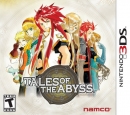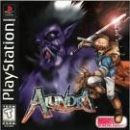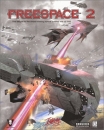Scoobes said:
At your first comment, I agree, the story itself hasn't advanced much (Planescape and Deus Ex being my faves, both about 10yrs old), but as you say, the telling part has and that is actually where I think the evolution has been important. Games are a very different media to books and film and it's the "telling" part that really sets it apart. So even with a poor-ish story, if they can tell it brilliantly then it can still be superb and suck you in. Take Mass Effect 2 for instance, the story is actually very generic, yet it's the way it's told and the way it grips you to actually care about the characters more than you would if it was just cut-scenes with a brilliant storyline. The decision comment was more about the evolution of that feature. I know it's been in existence for ages. However, I don't know about you but I find the decisions have become tougher and tougher and far more mature, especially if you look at a game like The Witcher where there really is no good or evil, just completely different opinions. This in itself adds to the way the story is told and makes you care more about the characters these decisions have an effect on. Finally, whilst JRPGs have tapped into many mechanics, I think there is still plenty of room to innovate and eventually there will be a JRPG that will come out that shows people this (of course, as I said in my original post, some may not classify it as a JRPG which is where I think this misconception stems from). |
I agree that nowadays WRPGs are doing a better job at gripping players into the story, mainly because WRPGs tend to not disconnect the player from the action, instead giving you very interesting conversations and interactions. In this aspect, I think WRPGs have taken a lesson out of the Half Life book and improved it to fit the genre, and have done it well.
Decisions on WRPG have also become more mature because games themselves have been allowed to dwelve into more mature grounds than previously was "allowed" to the medium. A WRPG dealing with hommosexuality, genocide or any other controversial theme in the 80s or 90s would simply be a no go and would only further fuel the stigma of games being "dangerous". Nowadays, factoring a much bigger acceptance of video games as a true entertainement medium, WRPGs have pushed the envelope into how much themes they can explore.
That's why I said that WRPGs have been constantly pushing the envelope into untapped territory, and they have done so better than JRPGs, but that's not to say that JRPG haven't dwelved on those themes as well. Just not with the same sense of interactivity that current WRPGs provide
Current PC Build
CPU - i7 8700K 3.7 GHz (4.7 GHz turbo) 6 cores OC'd to 5.2 GHz with Watercooling (Hydro Series H110i) | MB - Gigabyte Z370 HD3P ATX | Gigabyte GTX 1080ti Gaming OC BLACK 11G (1657 MHz Boost Core / 11010 MHz Memory) | RAM - Corsair DIMM 32GB DDR4, 2400 MHz | PSU - Corsair CX650M (80+ Bronze) 650W | Audio - Asus Essence STX II 7.1 | Monitor - Samsung U28E590D 4K UHD, Freesync, 1 ms, 60 Hz, 28"




















